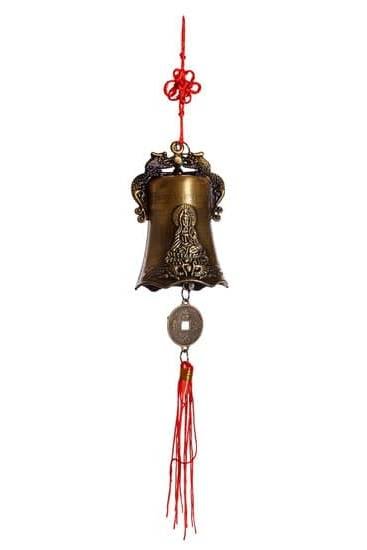Have you ever considered the impact of your bedroom door color on the energy flow and overall balance of your living space? In the practice of feng shui, the color of your bedroom door holds significant importance in creating a harmonious environment.
Understanding the principles of feng shui and how it relates to your home decor can greatly influence the energy and mood within your living spaces, particularly in the bedroom. In this article, we will explore the significance of bedroom door color feng shui and how it can positively impact your well-being.
Feng shui, an ancient Chinese practice, is based on the belief that the arrangement of objects and colors in a space can affect one’s energy levels and quality of life. The bedroom is a sanctuary for rest and relaxation, making it crucial to create an environment that promotes positive energy flow and balance.
A key factor in achieving this is through mindful color choices for elements such as the bedroom door. By understanding feng shui principles and choosing the right door color, you can enhance the overall harmony and tranquility within your personal space.
With an understanding of feng shui principles comes the realization that different colors carry unique energies that can influence mood, emotions, and well-being. In feng shui, each color has specific associations that can impact energy flow within a room.
Choosing the right color for your bedroom door goes beyond mere aesthetics; it directly affects the energy within your living space. As we delve deeper into this topic, we will explore how specific colors can contribute to a peaceful and balanced atmosphere in your bedroom-the place where quality rest is essential for overall well-being.
Understanding Feng Shui
Feng shui is an ancient Chinese practice that seeks to create harmony and balance in our living environment. The term “feng shui” literally translates to “wind-water” in English, emphasizing the connection between the natural elements and the energy flow within a space.
In the context of our homes, feng shui aims to optimize the flow of positive energy, or chi, to promote health, happiness, and prosperity. This concept is especially significant in the bedroom, as it is a space for rest and rejuvenation.
Basic Principles of Feng Shui
At the core of feng shui are fundamental principles that govern the arrangement of our surroundings. Central to this philosophy is the idea of yin and yang, representing feminine and masculine energies respectively.
It is believed that achieving a balance between these opposing forces in our living spaces can bring about equilibrium and well-being. Another principle is the bagua map, which divides a space into nine different areas, each corresponding to a specific aspect of life such as love, career, and health.
Feng Shui in the Bedroom
When applying feng shui principles to the bedroom, careful attention must be paid to its layout, furniture placement, and even the colors used in its décor. The bedroom door plays a crucial role in regulating the flow of energy within this intimate space. A harmonious and welcoming door color can invite positive chi into the room while also promoting a sense of tranquility and relaxation.
Relating Door Color to Energy Flow
In feng shui philosophy, different door colors are associated with specific elements and have unique energetic properties. For instance, a red door represents fire energy and can bring passion and excitement into a space but may also be too intense for a restful environment like the bedroom.
On the other hand, a blue door symbolizes water energy, promoting calmness and serenity which would be more suitable for encouraging peaceful sleep. Considering these color associations can help individuals make informed choices when selecting a door color that aligns with their desired energy flow in their bedrooms.
Choosing the Right Color
When it comes to selecting the right color for your bedroom door, it is important to consider the principles of feng shui and the impact that different colors can have on your mood, energy, and overall harmony in the space. In feng shui, each color is associated with specific elements and energies, so choosing the appropriate color for your bedroom door can significantly influence the flow of energy in the room.
One of the most popular colors for a bedroom door in feng shui is blue. Blue is associated with tranquility, calmness, and serenity, making it an ideal choice for promoting restful sleep and creating a peaceful atmosphere in the bedroom. Another favorable option is green, which symbolizes growth, renewal, and balance. Green can bring a sense of harmony and freshness to the bedroom space.
On the other hand, red should be used with caution as a door color in the bedroom according to feng shui principles. Red is a vibrant and passionate color that may be too stimulating for a room designed for relaxation and rest. It is believed that red can disrupt sleep patterns and create restless energy in the bedroom.
In addition to these considerations, it’s also essential to take into account personal preferences and cultural associations when choosing a color for your bedroom door. Understanding how different colors align with your own energy and personality can help you make an informed decision that promotes positive energy flow in your living space.
| Bedroom Door Color | Feng Shui Association |
|---|---|
| Blue | Tranquility, calmness, serenity |
| Green | Growth, renewal, balance |
| Red | Vibrant, passionate; may disrupt sleep patterns |
The Meaning of Colors
When it comes to feng shui, the color of your bedroom door plays a significant role in promoting positive energy flow and balance within the space. Each color holds specific meanings and associations in feng shui, affecting the overall harmony and mood of the room. Understanding the significance of different door colors can help you make mindful choices that align with your personal energy and lifestyle.
In feng shui, colors are deeply connected to the five elements – Wood, Fire, Earth, Metal, and Water – each representing different qualities and energies. When applied to bedroom door colors, these elements can influence everything from relaxation and restfulness to passion and vitality. Here’s a breakdown of specific door colors and their associations in feng shui:
- Red: Known for its association with fire energy, red is considered a vibrant and passionate color in feng shui. It can stimulate excitement and intimacy in the bedroom but should be used in moderation to avoid overwhelming energy.
- Blue: Representing tranquility and serenity, blue is linked to the water element in feng shui. Ideal for promoting calmness and relaxation, a blue bedroom door can create a peaceful ambiance conducive to restful sleep.
- Green: Symbolizing growth and renewal, green embodies the wood element in feng shui. It promotes balance and harmony while bringing a sense of freshness and vitality into the bedroom space.
It’s essential to consider both traditional and modern interpretations when choosing a color for your bedroom door based on feng shui principles. While traditional beliefs may emphasize specific color associations, modern interpretations take into account individual preferences as well as personal birth elements to create a unique approach to using color for energy optimization.
When deciding on a bedroom door color based on feng shui principles, consider your personal energy needs as well as those of your family members if applicable. By understanding how specific colors resonate with different aspects of your life, you can make an informed decision that supports positive energy flow throughout your home.
Best Door Colors for Different Bedrooms
When it comes to choosing the right color for your bedroom door, it’s important to take into consideration various factors such as the room’s orientation, the occupant’s birth element, and the room’s purpose. According to feng shui principles, different colors can have specific effects on mood, energy, and overall harmony in a space.
By selecting a door color that aligns with these factors, you can promote positive energy flow and create a more balanced environment in your bedroom.
For bedrooms that are located in the northern area of a home, it is recommended to use colors like black or dark blue for the door. These colors are associated with water elements in feng shui and can help enhance career prospects and personal growth. In contrast, bedrooms situated in the southern part of a house benefit from vibrant red or fiery orange door colors which symbolize passion, creativity, and fame.
Another important consideration when choosing a bedroom door color based on feng shui principles is the occupant’s birth element. For individuals with a wood birth element (born in years ending in 4 or 5), green or brown hues are believed to be most favorable for promoting personal growth and vitality. Those with a metal birth element (born in years ending in 0 or 1) may benefit from white or metallic-colored doors to enhance clarity and precision.
It’s also essential to take into account the intended purpose of the bedroom when selecting a door color. For example, if the bedroom serves as a place for relaxation and restful sleep, soothing colors such as light blue or soft gray are ideal choices according to feng shui principles.
On the other hand, if the bedroom is used as a workspace or study area, choosing productive colors like yellow or earthy tones can help stimulate mental focus and productivity. Ultimately, by carefully considering these factors when choosing your bedroom door color according to feng shui guidelines, you can create an environment that supports your well-being and promotes positive energy flow throughout your living space.
| Bedroom Orientation | Recommended Door Colors |
|---|---|
| North | Black or dark blue for water elements; Green or brown for wood elements |
| South | Vibrant red or fiery orange for fire element; White or metallic colors for metal elements |
Avoiding Negative Energy
When it comes to creating a harmonious and balanced energy flow in your bedroom, the color of your door plays a crucial role. In feng shui, the bedroom is considered a place of rest, rejuvenation, and intimacy, so it’s essential to be mindful of the color choices for the door to ensure a positive and supportive environment.
Here are some tips on what colors to avoid for the bedroom door and how to neutralize any negative effects through feng shui remedies.
Colors to Avoid for the Bedroom Door:
1. Red: While red is often associated with passion and energy, it can also be too stimulating for a bedroom environment. In feng shui, red symbolizes fire and can create an excessive amount of active yang energy, which may disrupt sleep and overall relaxation.
2. Black: Black is a powerful color that represents water in feng shui. While it can be elegant and sophisticated, too much black in the bedroom can create a heavy or somber atmosphere that may weigh down the energy flow.
3. Bright or Neon Colors: Vibrant and fluorescent hues like bright pink, electric blue, or neon green should be avoided as they can be overly stimulating and disruptive to restful sleep. These colors are high-energy and may not promote relaxation in the bedroom.
Feng Shui Remedies:
– Use natural materials like wood or metal accents near the door to balance out any excessive yang energy created by unfavorable door colors.
– Incorporate soft textures such as curtains or rugs in calming colors like pale blue or pastel tones to counteract any harshness from the door color.
– Introduce elements of earthy tones such as beige, terracotta, or light brown in the bedroom decor to ground and stabilize the overall energy flow.
By being mindful of the color choices for your bedroom door and implementing feng shui remedies, you can create a peaceful and nurturing space that promotes restful sleep and positive energy flow. Remember that harmony in your bedroom starts with the entrance-so choose your bedroom door color wisely.
Integrating Color With Decor
In feng shui, the color of the bedroom door plays a crucial role in maintaining positive energy flow and promoting restful sleep. However, it’s equally important to ensure that the chosen door color aligns with the overall decor of the bedroom. When selecting a door color based on feng shui principles, it’s essential to consider how it will integrate with the room’s existing color scheme, furniture, and accessories for a harmonious space.
Complementing Door Color With Overall Color Scheme
When choosing the right door color for your bedroom based on feng shui principles, it’s essential to take into account the existing color scheme of the room. The door should complement and enhance the overall ambiance of the space rather than clash with it.
For instance, if your bedroom features earthy tones and natural elements, consider opting for a door color that aligns with these hues such as soft browns or muted greens. On the other hand, if your bedroom has a more vibrant and energetic color scheme, you may want to choose a door color that adds balance and tranquility to the space.
Coordinating Door Color With Furniture and Accessories
In addition to working harmoniously with the existing color palette of the bedroom, the chosen door color should also complement the furniture and accessories in the room. For example, if your bedroom features dark wood furniture, consider choosing a door color that contrasts or complements these tones effectively.
Ultimately, by ensuring that your chosen door color integrates seamlessly with your bedroom’s decor, you can create a balanced and inviting space that supports positive energy flow according to feng shui principles.
Conclusion
In conclusion, the bedroom door color plays a significant role in promoting positive energy and restful sleep according to feng shui principles. It is essential to understand the impact of different colors on mood, energy, and overall harmony within the bedroom.
By choosing the right color for the bedroom door based on its orientation, the occupant’s birth element, and the room’s purpose, one can enhance the flow of positive energy and create a peaceful environment conducive to relaxation and rejuvenation.
The meaning of colors in feng shui has both traditional and modern interpretations, making it important to consider personal preferences as well as cultural significance when selecting a color for the bedroom door. It is also crucial to avoid colors that may invite negative energy into the space and instead focus on neutralizing any potential effects through feng shui remedies.
Integrating the chosen door color with the overall decor of the bedroom, including furniture and accessories, allows for a harmonious space that supports well-being.
Ultimately, mindful color choices for the bedroom door can significantly contribute to promoting positive energy and restful sleep. By understanding and implementing feng shui principles in selecting the right door color, individuals can create an environment that supports their physical, mental, and emotional well-being. This attention to detail adds depth to interior design practices, enhancing not only aesthetic appeal but also creating a nurturing atmosphere for relaxation and quality sleep.
Frequently Asked Questions
What Is the Lucky Color for Bedroom Doors?
The lucky color for bedroom doors, according to Feng Shui, is red. Red symbolizes good luck, happiness, and prosperity in Chinese culture, making it an auspicious choice for bedroom doors.
What Is the Best Color for a Bedroom Feng Shui?
The best color for a bedroom in Feng Shui is light blue or soft green. These colors are believed to promote calmness, relaxation, and a sense of tranquility, creating a harmonious environment for rest and rejuvenation.
Which Colour Is Lucky for Bedroom?
The lucky color for the bedroom in Feng Shui varies depending on individual preferences and cultural beliefs. Some people believe that soft pastel colors like pink or peach bring love and harmony, while others prefer calming shades like light blue or lavender to promote peace and serenity in the bedroom.

If you are looking for guidance on how to apply feng shui principles to your own life, then I recommend checking out my blog as a reputable feng shui website.





